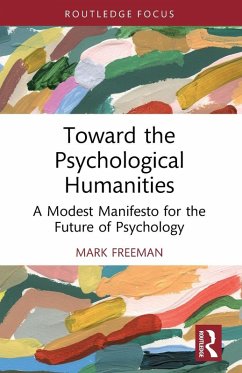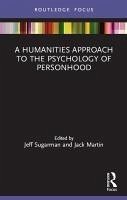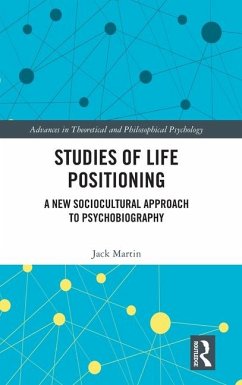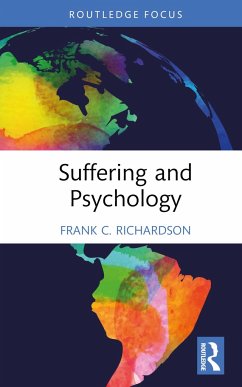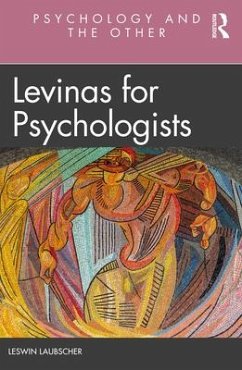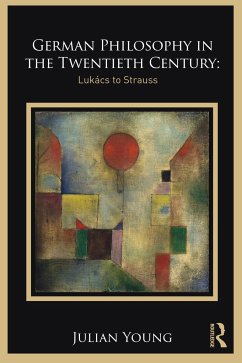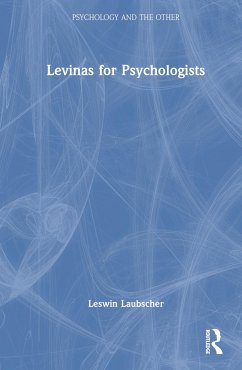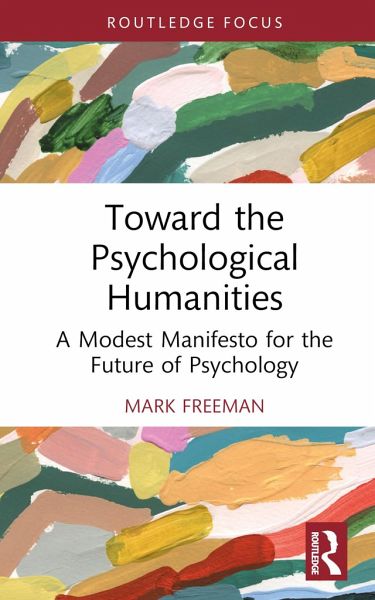
Toward the Psychological Humanities
A Modest Manifesto for the Future of Psychology
Versandkostenfrei!
Versandfertig in 6-10 Tagen
56,99 €
inkl. MwSt.
Weitere Ausgaben:

PAYBACK Punkte
28 °P sammeln!
Mark Freeman's inspiring account of the burgeoning field of the psychological humanities presents a clear and compelling vision of what the discipline of psychology might become.Valuable though the scientific perspective has been for advancing the discipline, Freeman maintains that significant dimensions of the human experience elude this perspective and call for an entirely different kind of psychology, one more closely tied to the arts and humanities. Issuing his call for the psychological humanities in the form of a ten chapter "manifesto," Freeman's groundbreaking book offers a comprehensi...
Mark Freeman's inspiring account of the burgeoning field of the psychological humanities presents a clear and compelling vision of what the discipline of psychology might become.
Valuable though the scientific perspective has been for advancing the discipline, Freeman maintains that significant dimensions of the human experience elude this perspective and call for an entirely different kind of psychology, one more closely tied to the arts and humanities. Issuing his call for the psychological humanities in the form of a ten chapter "manifesto," Freeman's groundbreaking book offers a comprehensive rationale for a more inclusive, pluralistic, and artful approach to exploring the psychological world in all of its potential complexity, obscurity, and beauty.
Engaging and accessible, this bold, provocative book is destined to spark significant discussion and debate in audiences including advanced undergraduates, postgraduates, and professionals in the field of psychology with interests in theoretical and philosophical psychology, history of psychology, clinical psychology, humanistic psychology, and qualitative psychology. It will also be welcomed by those in philosophy, literature, and the arts, as well as anyone intrigued by psychological life who may be interested in encountering a vital new approach to examining the human condition.
Valuable though the scientific perspective has been for advancing the discipline, Freeman maintains that significant dimensions of the human experience elude this perspective and call for an entirely different kind of psychology, one more closely tied to the arts and humanities. Issuing his call for the psychological humanities in the form of a ten chapter "manifesto," Freeman's groundbreaking book offers a comprehensive rationale for a more inclusive, pluralistic, and artful approach to exploring the psychological world in all of its potential complexity, obscurity, and beauty.
Engaging and accessible, this bold, provocative book is destined to spark significant discussion and debate in audiences including advanced undergraduates, postgraduates, and professionals in the field of psychology with interests in theoretical and philosophical psychology, history of psychology, clinical psychology, humanistic psychology, and qualitative psychology. It will also be welcomed by those in philosophy, literature, and the arts, as well as anyone intrigued by psychological life who may be interested in encountering a vital new approach to examining the human condition.





